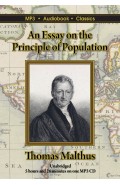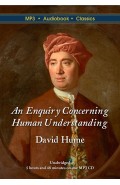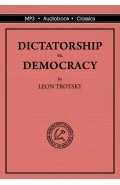| Section | Tracks | Length |
| DISC 1 | ||
| 00 - Introduction and Plan of the Work | 1 | 6:40 |
| BOOK I. OF THE CAUSES OF IMPROVEMENT IN THE PRODUCTIVE POWERS OF LABOUR, AND OF THE ORDER ACCORDING TO WHICH ITS PRODUCE IS NATURALLY DISTRIBUTED AMONG THE DIFFERENT RANKS OF THE PEOPLE. | ||
| Ch 01 - The Division of Labour | 2 | 19:43 |
| Ch 02 - Of the Principle That Gives Occasion of Division of Labour | 3 | 8:53 |
| Ch 03 - That the Division of Labour Is Limited by the Extent of the Market | 4 | 10:14 |
| Ch 04 - Of the Origin and Use of Money | 5 | 14:46 |
| Ch 05 - Of the Real and Nominal Price of Commodities or of Their Price In Labour and Their Price In Money, parts 1-2 | 6-7 | 37:40 |
| Ch 06 - Of the Component Part of the Price Of Commodities | 8 | 15:17 |
| Ch 07 - Of the Natural and Market Price of Commodities | 9 | 18:57 |
| Ch 08 - Of the Wages of Labour, parts 1-2 | 10-11 | 48:18 |
| Ch 09 - Of the Profits of Stock | 12 | 23:13 |
| Ch 10 - Of Wages and Profit in the Different Employments of Labour and Stock, parts 1-5 | 13-17 | 2:12:14 |
| Ch 11 - Of the Rent of Land, parts 1-8 | 18-24 | 4:09:07 |
| BOOK II. OF THE NATURE, ACCUMULATION, AND EMPLOYMENT OF STOCK. | ||
| Introduction & Ch. 1 - Of the Division of Stock | 25 | 23:29 |
| Ch 2 - Of Money Considered as a Particular Branch of the General Stock of Society or of the Expense of Maintaining the National Capital, parts 1- 3 | 26-28 | 1:51:30 |
| Ch 3 - Of The Accumulation Of Capital or of Productive and Unproductive Labour, parts 1-2 | 29-30 | 46:48 |
| Ch 4 - Of Stock Lent At Interest | 31 | 20:13 |
| Ch 5 - Of the Different Employments of Capitals | 32 | 40:43 |
| BOOK III. OF THE DIFFERENT PROGRESS OF OPULENCE IN DIFFERENT NATIONS | ||
| Ch 1 - Of the Different Progress of Opulence in Different Nations | 33 | 11:37 |
| Ch 2 - Of the Discouragement of Agriculture in the Ancient State of Europe After the Fall of the Roman Empire | 34 | 27:12 |
| Ch 3 - Of the Rise and Progress of Cities and Towns after the Fall of the Roman Empire | 35 | 24:51 |
| Ch 4 - How the Commerce of Towns Contributed to the Improvement of the Country | 36 | 30:24 |
| DISC 2 | ||
| BOOK IV. OF SYSTEMS OF POLITICAL ECONOMY. | ||
| Intro & Ch 01 - Of the Principle of the Commercial or Mercantile System, part A | 1 | 30:12 |
| Ch 1 - Of the Principle of the Commercial or Mercantile System, part B | 2 | 27:40 |
| Ch 2 - Of Restraints Upon the Importation from Foreign Countries of Such Goods as can be Produced at Home, parts A & B | 3-4 | 50:23 |
| Ch 3 - Of The Extraordinary Restraints Upon The Importation Of Goods of Almost All Kinds From Those Countries of Which the Balance is Supposed to be Disadvantageous, parts A & B | 5-6 | 1:03:56 |
| Ch 4 - Of Drawbacks | 7 | 13:14 |
| Ch 5 - Of Bounties, parts A - D | 8-11 | 1:35:30 |
| Ch 6 - Of Treaties of Commerce | 12 | 28:57 |
| Ch 7 - Of Colonies, parts A - G | 13-19 | 3:21:14 |
| Ch 8 - Conclusion of the Mercantile System, parts A & B | 20-21 | 52:08 |
| Ch 9 - Of the Agricultural Systems or of Those Systems of Political Economy which Represent the Produce of Land as Either the Sole or the Principal Source of the Revenue and Wealth of Every Country, parts A & B | 22-23 | 1:05:53 |
| BOOK V. OF THE REVENUE OF THE SOVEREIGN OR COMMONWEALTH | ||
| Ch 1 - Of The Expenses Of The Sovereign Or Commonwealth, parts A - H | 24-31 | 4:29:01 |
| Ch 2 - Of the Sources of the General or Public Revenue of the Society, parts A - G | 32-38 | 3:52:17 |
| Ch 3 - Of Public Debts, parts A - C | 39-41 | 1:34:30 |
Notes
Running Time: 36 hours 15 minutes
Read by: Stephen Escalara
Book Coordinator: Stephen Escalara
Meta Coordinators: Mary Anderson (Books I - III), Karen Savage (Book IV), Barry Eads (Book V)
Proof Listener: Karen Merline (Books I - III)
Artwork
Cover: Etching created by Cadell and Davies , John Horsburgh or R.C. Bell from an original depiction of Smith created in 1787 by James Tassie in the form of an enamel paste medallion.
Inset: Title page of Adam Smith's Wealth of Nations, 1776.
Inset: The Muir portrait of Adam Smith by an unknown artist.
Recordings
These recordings were made using the author’s original published work, which is in the public domain. The readings were recorded by members and volunteers of Librivox.org, which has generously made the recordings available to the public domain. The audio files have been lightly edited and have been engineered using professional audio tools for maximum sonic quality. While Librivox condones the sale and distribution of these recordings, it is not associated with the management or operations of MP3 Audiobook Classics.
An Inquiry into the Nature and Causes of the Wealth of Nations ranks alongside Newton’s Principia Mathematica, Darwin’s On the Origin of Species, and Lavoisier’s Elementary Treatise of Chemistry as a profound work that helped lay the intellectual foundations of the modern world. Over a period of seventeen years Adam Smith assembled notes and observations of discussions among economists and spent ten years writing a treatise that offered a practical reformed economic theory to meet the challenges of the emerging Industrial Revolution and replace increasingly obsolete mercantilist and physiocratic economic theories. It consists of five Books: Book I, Of the Causes of Improvement in the Productive Powers of Labour; Book II, Of the Nature, Accumulation, and Employment of Stock; Book III, Of the Different Progress of Opulence in Different Nations; Book IV - Of Systems of Political Economy; and Book V - Of the Revenue of the Sovereign or Commonwealth. The ideas and policies articulated by Smith have influenced countless economists and authors as well as governments and organizations over the ages. The notion that individuals guided by their enlightened self-interest will achieve an economic outcome that benefits the public at large is a sacred tenet of neoclassical economics, as is the related idea of “an invisible hand” that creates economic equilibrium and prosperity when markets are allowed to operate freely. The book was an instant success when it was published in 1776, selling out in six months. It went through five editions in Smith’s lifetime, with significant Additions and Corrections and an index included in the third edition of 1784. It continues to be a fundamental work in classical economics to this day.
Play sample:
Download our PDF datasheet
| Item Info | |
| EAN - DVD case | 0683422134975 |
| EAN - CD jacket | 0687700169628 |
| Media | 2 MP3 CDs |
| Package | DVD Case |
| Author | Adam Smith (1723 - 1790) |
| Recording | |
| Read by | Stephen Escalera |
| Length | 36 hours and 15 minutes |
| Type of Reading | Solo |
The Wealth of Nations
- Author: Adam Smith
- Product Code: DB-2004
- Availability: In Stock
-
$14.99
Available Options
Related Products
An Essay on the Principle of Population
An Essay on the Principle of Population, first published in 1798, is considered the most influential..
$9.99
The Communist Manifesto
“You pay us just enough so we don’t quit and we work just hard enough so you don’t fire us.” These w..
$9.99
The Federalist Papers
The Federalist, which came to be called the Federalist Papers in the twentieth century, is a remarka..
$14.99
An Enquiry Concerning Human Understanding
An Enquiry Concerning Human Understanding by David Hume was published in 1748 and is a shortened rev..
$9.99
The Federalist No. 65
The Federalist Papers is a series of 85 articles arguing in favor of ratification of the Un..
$2.49
The Federalist No. 66
The Federalist Papers is a series of 85 articles arguing in favor of ratification of the Un..
$2.49
The Federalist No. 74
The Federalist Papers is a series of 85 articles arguing in favor of ratification of the Un..
$2.49
Fascism: What It Is and How to Fight It
Fascism: What It Is and How to Fight It, written by Leon Trotsky in 1933, is a critical analysis of ..
$9.99
Dictatorship vs. Democracy
"Dictatorship and Democracy," written by Leon Trotsky in 1937, explores the tensions between dictato..
$9.99
















